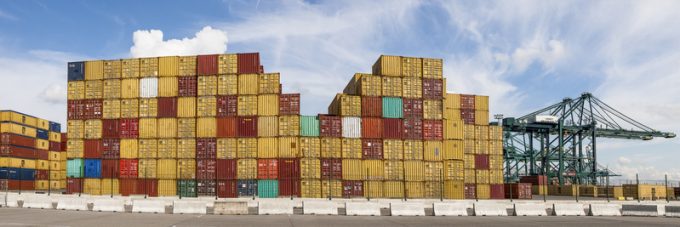Capture of MSC Aries will further drive up Indian export costs
With heightened geopolitical tensions sparked by the Iran-Israel faceoff, Indian exporters are again staring at ...

“Vague” is how one analyst described Antwerp Port Community’s plan to alleviate the barge congestion that has hobbled the Belgian port for more than a year.
Receiving consensus last week, the Inland Container Navigation Action Plan will focus on digitisation, planning and increased recruitment.
Industry adviser SeasC4U was unenthusiastic, telling The Loadstar that despite “good, honourable intentions”, the plans are dependent on commitment from all the stakeholders.
“It will all depend on how these intentions are converted, and how they – assuming they make sense and can contribute to the solutions – are implemented,” said a spokesperson.
“And it will also depend on the extent to which all stakeholders will be prepared to commit to the agreed actions and their loyal execution of these.”
Under the plans, a platform for real-time information will be created, while the barge traffic system (BTS) will increase the number of berths for inland navigation and improve planning.
The plan will also work towards bundling volumes, both inside and outside the port, to optimise services, and has started a drive to recruit additional workers with improved training.
According to press reports the projects will be initiated over the coming weeks with all the parties reconvening in January to discuss the progress.
SeasC4U said the digitisation and bundling plans were both “ambiguous” and “unclear”, adding it was “unsure how willing” parties would be to exchange key information.
“Are carriers prepared – or able – to share data with respect to cargo and final destination, and are shippers prepared to share information on transit points and destination for exports?” asked the spokesperson.
“Who will have to provide data, and what will the cost of maintaining real-time, accurate information be? Digitisation has value as part of a total approach, but should it be considered the holy grail?”
In addition, the analyst also questioned who would pay for the bundling, and noted there was no mention of operators consolidating tonnage and sharing capacity to reduce terminal calls per barge.
However, he had some praise for the “better late than never” recruitment increase, which, combined with planning and dedicated barge capacity, was the right way forward.
“There are a lot of critical steps mentioned in the report, and I am looking forward to learn how these intentions are converted into concrete actions.
“There is one positive note on Antwerp Port Authority. Many concerned parties of the malaise on the barge scene have suggested the port authority moves from a facilitating to a more directing position.
“It seems it has moved in that direction – good.”
Comment on this article